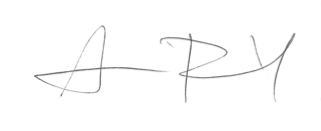GYOPO Year End Reflections

Community
December 1, 2024
For much of my life, I had a somewhat conflicted relationship with my Korean American identity, feeling simultaneously hypervisible as an Other in the predominantly white communities I grew up in on the East Coast and invisible as a Korean American because I didn’t quite fit in with those who were defining Korean-ness in my life. It took me a long time to realize that I am exactly Korean enough, that there is no litmus test that can prove or disprove my Koreanness. Moving to Los Angeles was a reset in many ways, including in my relationship with my Korean American identity.
I followed GYOPO while living in New York, so as soon as I got settled here I immediately reached out to volunteer– I knew this was a group I wanted to be a part of. I was welcomed into the GYOPO community quickly and immediately felt seen and valued for my unique story and skill sets. The programs that GYOPO organizes are impressive and far-reaching, but what I couldn’t understand from afar was how much being a part of this community (first as a volunteer, then as interim Programs Committee Co-Chair, and now as a Steering Committee member) would enrich my life. My favorite moments have been the small ones where relationships are built and strengthened– sharing the first bowl of naengmyun of the summer with fellow volunteers, a walk on the beach with panelists from Korea after our discussion on alternative art spaces, drinks with activists fighting for peace on the Korean peninsula, and watching fellow GYOPO volunteers play with my children at a gathering in my home.
Being a part of GYOPO has shown me that my personal Korean American experience is as equal and valid as anyone else’s– it is but one strand in the larger and continuously evolving fabric of diasporic Korean identity.
I believe ethnic affinity groups such as GYOPO are their best when they use their own specific histories and experiences to weave into larger global movements against white supremacy, patriarchy, and capitalism. By examining the work of Korean cultural producers, GYOPO provides a platform for discussions that connect us to these larger issues. For example, a screening of the documentary Crossings shed light on how the ongoing Korean War birthed the modern US military industrial complex; a discussion with Grace M. Cho, author of Tastes Like War, made visible the layered experiences of mixed race Koreans; a recent panel discussion examined how Asian American artists are using cuteness in their practices to both challenge and challenge gendered racial stereotypes; and several GYOPO volunteers, including myself, were asked to reflect on a piece from The Space Between at LACMA, a special opportunity for us to present multiple entry points into this landmark exhibition of modern Korean art. GYOPO is co-organizing a day of programming at the Hammer Museum, which will provide insight and context into Only The Young: Experimental Art in Korea, 1960s–1970s, exploring the impact of social and political conditions on cultural production at that time and drawing connections to the work of diasporic Korean artists today. Through our programming and community building, we make our identity richer and more inclusive, resisting the nationalism, queerphobia, and ethnic essentialism that has excluded and marginalized various members of the Korean diaspora.
While it is heartening to see Korean culture trend globally right now, it should also make us pause to consider who is deciding how and to whom we are visible. GYOPO works hard to earn foundation and government grants, but it is imperative that we continue to raise funds at a grassroots level from individual supporters such as yourself. Your tax deductible contributions give us the freedom and agency to evolve and explore exciting new ways to fulfill our mission. With your help, we do not need and will not wait for a brief moment in the spotlight; we will continue to be emphatically and wholly seen by each other, enriching and expanding both the GYOPO community and ourselves.

Alex Paik
Steering Committee and Program committee co-chair, GYOPO
Founder and Director, Tiger Strikes Asteroid
M M M M